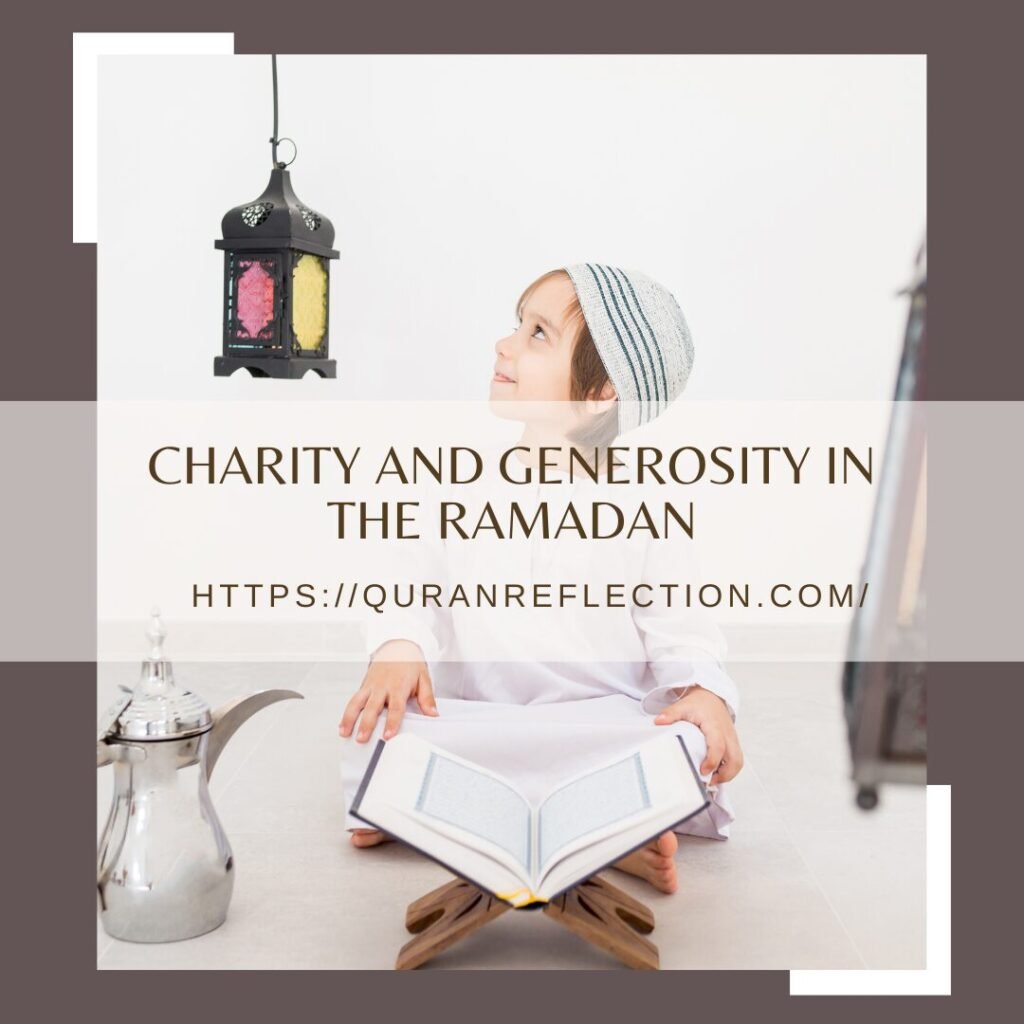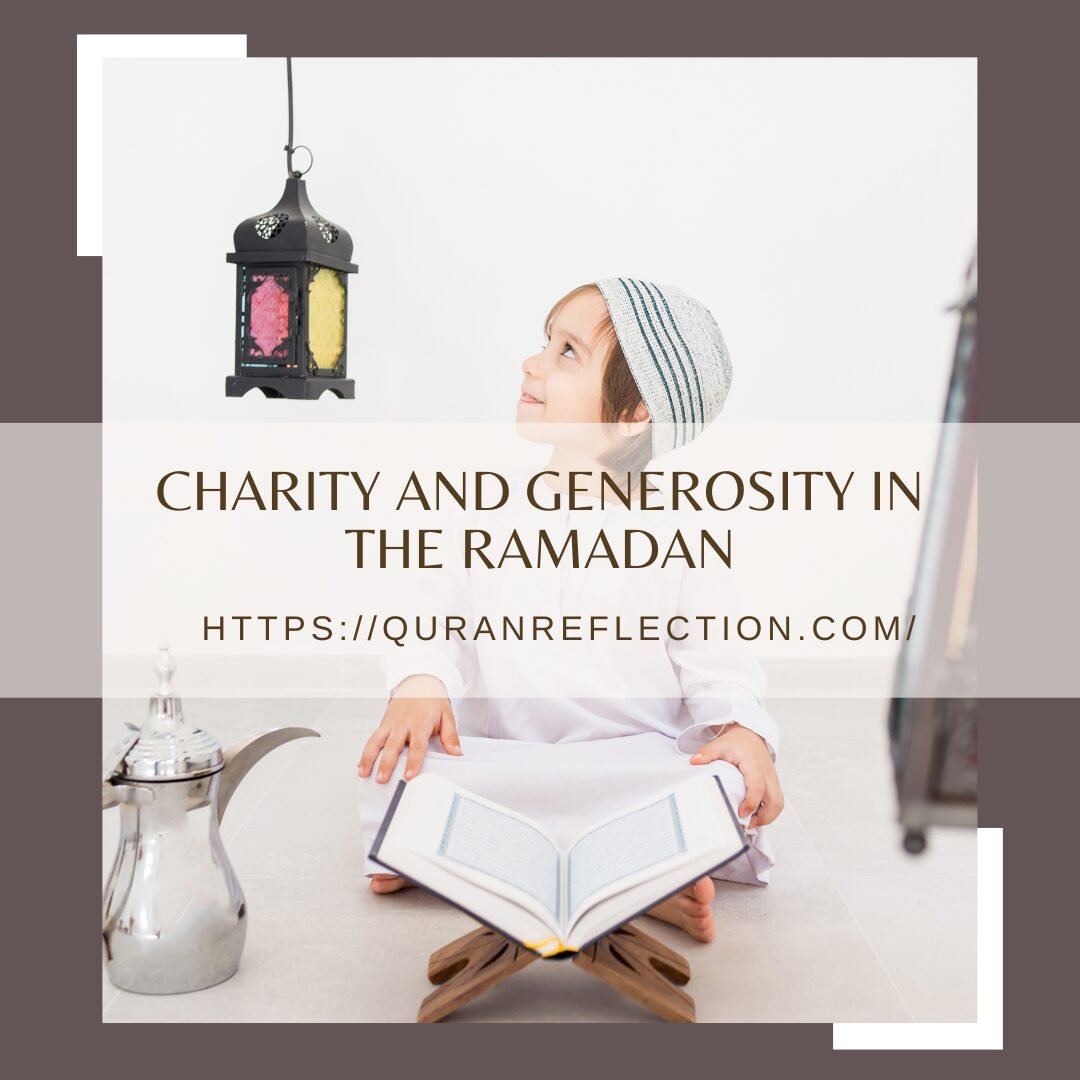Charity And Generosity In The Ramadan
Introduction:
Ramadan, the 9th month of the Islamic lunar calendar, is a time of heightened spirituality, self-mirrored image, and communal solidarity for Muslims around the arena. principal to the observance of Ramadan is the emphasis on charity and generosity, exemplified through acts of giving called Zakat and Sadaqah. In this complete exploration, we delve into the significance of charitable giving at some point in Ramadan, discussing the standards of Zakat and Sadaqah, in addition to the profound effect of acts of kindness on people and communities.

The Significance Of Charity And Generosity In Ramadan:
Charity and generosity are vital factors of Islamic teachings, embodying the principles of compassion, empathy, and social obligation. for the duration of Ramadan, the significance of charitable giving is heightened, as Muslims are recommended to illustrate generosity and help the ones in want. The Quran and the Hadith emphasize the virtues of giving, portraying acts of charity as a method of purifying wealth, accomplishing religious rewards, and enjoying one’s responsibility to society. Zakat and Sadaqah serve as tangible expressions of faith, symbolizing a dedication to social justice and the remedy of poverty.
Zakat The Compulsory Almsgiving:
Zakat is one of the five Pillars of Islam, compulsory upon Muslims who own wealth past a special threshold (Nisab). it’s far calculated as a hard and fast percentage (typically 2.five%) of 1’s collected wealth, such as financial savings, investments, and assets, and is sent to eligible recipients (Asnaf). the categories of recipients consist of the negative, the needy, those in debt, vacationers, and those running for the reason of Allah. Zakat serves to purify wealth, redistribute resources, and strengthen the bonds of unity in the Muslim network.
Sadaqah Voluntary Acts Of Charity:
Sadaqah contains a broader spectrum of charitable giving, comprising voluntary acts of kindness, compassion, and generosity. in contrast to Zakat, which is obligatory, Sadaqah is discretionary and may take diverse paperwork, inclusive of financial donations, feeding the hungry, offering shelter to the homeless, and offering assistance to the susceptible. Sadaqah reflects the spirit of selflessness and compassion inherent in Islam, encouraging Muslims to present generously and guide those in need, no matter their financial circumstances.
The Impact Of Charity And Generosity In Ramadan:
The effect of charitable giving in the course of Ramadan extends far beyond the fabric realm, reworking lives and communities in profound ways. Through Zakat and Sadaqah, Muslims alleviate poverty, offer crucial services, and empower marginalized individuals and families. Charity fosters an experience of compassion, empathy, and team spirit, bridging divides and fostering an experience of shared humanity. furthermore, acts of kindness in the course of Ramadan inspire hope, instill gratitude, and strengthen the bonds of network, uniting people of diverse backgrounds in a common cause.
Realistic Approaches To Provide Back In The Course Of Ramadan:
As Muslims have a look at the holy month of Ramadan, there are numerous possibilities to interact in charitable giving and acts of kindness. Donating to legitimate charities and humanitarian companies that offer comfort to those in need is a tangible way to satisfy Zakat’s responsibility and contribute to society’s well-being. moreover, volunteering at local meal banks, shelters, and network companies permits individuals to make a direct impact on the lives of others and revel in the pleasure of giving firsthand. Small acts of kindness, which include sharing food with buddies, presenting phrases of encouragement, and expressing gratitude, can also greatly foster a way of life of generosity and compassion inside groups.
Conclusion:
Charity and generosity lie at the heart of Ramadan, embodying the ideas of compassion, empathy, and social duty central to Islamic teachings. via Zakat and Sadaqah, Muslims satisfy their responsibility to assist the ones in need, alleviate struggling, and sell social justice. As Muslims internationally observe the holy month of Ramadan, the spirit of giving prevails, uniting people and groups in a shared commitment to compassion, generosity, and team spirit. via embracing the ethos of charity and kindness, Muslims exemplify the undying values of Islam and inspire advantageous alternatives in the international around them.










